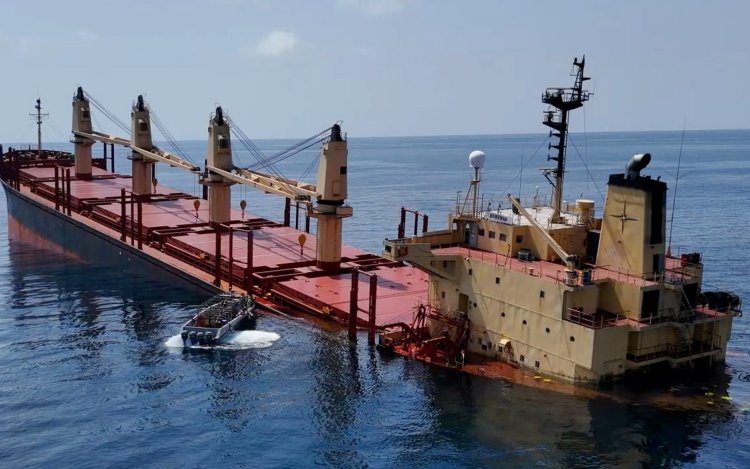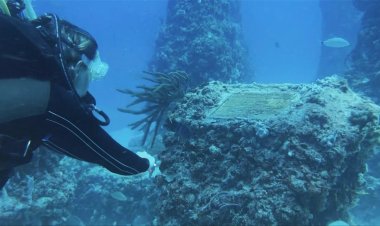Yemeni Ship Sinks in Red Sea After Houthi Attack

A ship attacked by Yemen's Houthi rebels has sunk in the Red Sea after days of taking on water, officials said, the first vessel to be fully destroyed as part of their campaign over Israel's war against Hamas in the Gaza Strip.
The sinking of the Rubymar, which carried a cargo of fertilizer and previously leaked fuel, could cause ecological damage to the Red Sea and its coral reefs.
Persistent Houthi attacks have already disrupted traffic in the crucial waterway for cargo and energy shipments moving from Asia and the Middle East to Europe.
Already, many ships have turned away from the route.
The sinking could see further detours and higher insurance rates put on vessels plying the waterway — potentially driving up global inflation and affecting aid shipments to the region.
The Belize-flagged Rubymar had been drifting northward after being struck by a Houthi anti-ship ballistic missile on Feb. 18 in the Bab el-Mandeb Strait, a crucial waterway linking the Red Sea and the Gulf of Aden.
Yemen's internationally recognized government, as well as a regional military official, confirmed the ship sank. The official spoke on condition of anonymity as no authorization was given to speak to journalists about the incident.
The British military's United Kingdom Maritime Trade Operations center, which watches over Mideast waterways, separately acknowledged the Rubymar's sinking.
“The approximately 21,000 metric tons of ammonium phosphate sulfate fertilizer that the vessel was carrying presents an environmental risk in the Red Sea,” it said in a statement. “As the ship sinks it also presents a subsurface impact risk to other ships transiting the busy shipping lanes of the waterway.”
Yemen's exiled government, which has been backed by a Saudi-led coalition since 2015, said the Rubymar sank as stormy weather took hold over the Red Sea.















